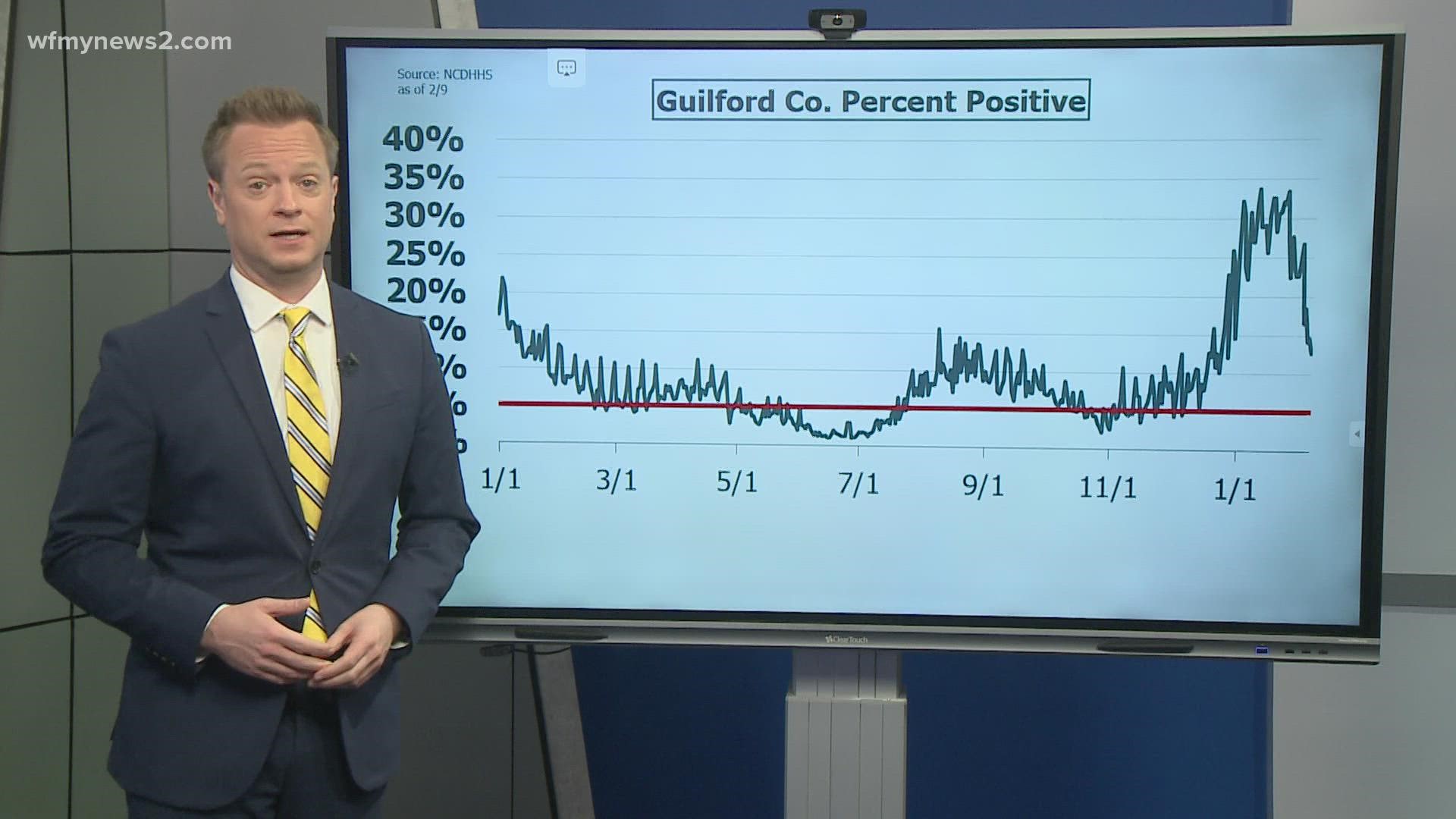GOLDSBORO, N.C. — Editor's note: COVID-19 video from Wednesday focuses on a deeper look at percent positive rates in the Triad.
State health officials released updated changes Thursday to the Strong Schools NC Public Health Toolkit.
The toolkit gives school districts guidance for managing COVID-19 and masking recommendations. The North Carolina Department of Health and Human Services said the new set of guidelines focuses on strategies most effective at this stage of the pandemic. That includes vaccines, boosters, testing and masking, and it no longer recommends individual contact tracing in K-12 schools.
Another recommendation includes students and staff no longer be required to stay home from school following a COVID-19 exposure unless they have symptoms or test positive.
Here are the changes that took effect in the toolkit for schools:
- Students/staff who are exposed by asymptomatic no longer need to stay home from school
- However, if that student/staffer decides they want to stay home from school to quarantine, the school must allow them to do so for 5 days
- That person(s) must still notify exposed students/staff
- Exposed people should wear a mask for at least 10 days since exposure
- Exposed people should get tested as soon as possible and on day 5 of exposure
- Anyone with symptoms must isolate according to state/CDC guidelines
- Local rules can be more strict than what DHHS has laid out
- Being considered "up to date on COVID vaccines" now includes boosters
The guide also, reveals schools should require masks for all grades and ages, but again there is no explicit rule stating districts must do so.
Governor Roy Cooper spoke Thursday about school masking policies while touring a Fundamentals Child Development Center in Goldsboro. He was there to provide an update on the North Carolina Child Care Stabilization Grants encouraging all eligible child care centers to apply for funding. He also spoke about the changes being made to the toolkit.
"I’m pleased and hopeful that we can get back to normal lives with the understanding, that we’re going to need to do things to make sure that we protect ourselves dependent upon the risk,” Gov. Cooper said. “They’re reviewing that policy right now but what I think is more important is that we continue to watch the trends and make sure we’re coming down significantly. We’ve still had thousands of cases today almost 4,000 people in the hospital. I’m going to rely on our health officials and their recommendations before making any announcements on that,” Cooper said.
State health officials commented on the new recommended toolkit guidelines.
"We are committed to ensuring North Carolinians have the guidance and information necessary to balance their risk during each stage of the pandemic and learn to live with COVID-19," said NCDHHS Secretary Kody H. Kinsley. "Keeping kids in the classroom remains a top priority. As we have done throughout the pandemic, we evaluate which tools are most effective to protect students and staff. This is the right approach for this point in the pandemic and includes flexibility for local schools and health departments to use data to make informed decisions and respond to local conditions."
Health leaders said they’ll continue to emphasize the public health tools most effective in slowing the spread of COVID-19, which are outlined in the guide and include promoting getting vaccinated and boosted, wearing a mask while transmission rates are high, getting tested and staying home if sick.
"When conditions change, we adapt our tools, prioritize what works and stay focused on our shared goal — keeping our children healthy and learning,” said State Health Director and NCDHHS Chief Medical Officer Elizabeth Cuervo Tilson, M.D.
State health leaders also addressed why contact tracing has been lessened in the overall effectiveness of contact tracing in K-12 schools and the broader community. These factors include:
- Emergence of variants with shorter incubation periods and rapid transmission.
- People with infections are most contagious prior to symptom onset and during the first few days of illness.
- Larger number of asymptomatic and less severe cases due, in part, to more immunity from vaccination and past infection.
- Many infections are never identified by public health agencies because people with asymptomatic or mild cases may not get tested and due to the increasing use of "over-the-counter" at-home tests.
- Widespread virus and low rates of case and contact identification limit effectiveness of contact tracing to reduce transmission.
Health leaders said even though exclusion from school is no longer recommended following an exposure, notification of potential exposure is still recommended. It also said local schools and health departments can still opt to continue contact tracing.

